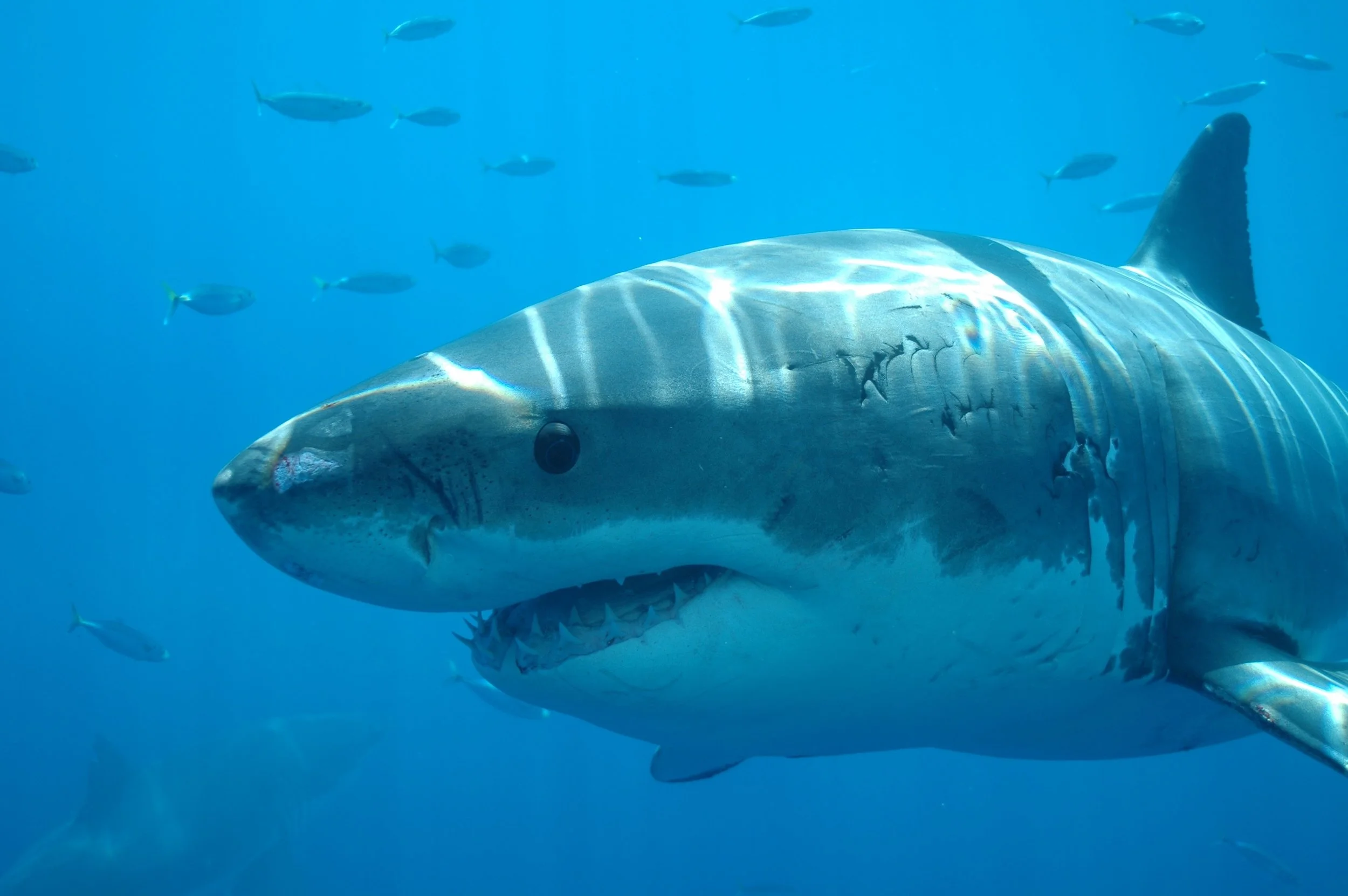The future of white sharks
In recent years, we have seen worrisome trends within white shark populations in different parts of the world. What is curious is that developments that threaten the sharks, as in South Africa, are underreported, dismissed, or explained away by blaming other animals, such as Orca. New sightings and shifts in population numbers, such as on the US East Coast are portrayed as a dangerous increase in numbers. It seems the narrative always goes to the stories that match the fear and loathing that humans feel, and if that doesn’t work, then nature or another predator needs to take the blame. But deep down we all know that the problem lies with the most likely causes, those caused by humanity - overfishing, loss of habitat, and loss of biodiversity and food fish in the oceans.
White sharks have more protection than most shark species, and while all shark species are equally important, with whites there are additional considerations. Their population numbers are small, to begin with, and a drastic reduction can easily push them to regional population extinction. White sharks, as one of the largest predators in the ocean, are also critical because of their role in the natural control of marine mammal health and numbers. Last but not least, they are amongst the high earners and rockstars in major industries such as dive tourism and media productions. From an ethical point of view that shouldn’t matter, but in reality, ecotourism numbers are often the driving factor in policies drafted to protect certain areas. If an animal brings value alive, it is easier to defend their protection.
So we ask several questions:
Why are the industries that benefit the most so uninvolved in the protection of sharks? (read more about the entertainment industry and global ecotourism numbers)
How can we improve the Guadalupe situation in the long term? While there was outrage when the island was closed to cage diving, the conservation community seems to have given up on this location. Are our greatest fears of possible poaching dangers overblown? What are the possible solutions?
Why are we not paying more attention to what is happening to South African white sharks? The conclusion that it must be the Orcas’ fault has been widely accepted and reported on. But is that the whole picture? The truth is most likely a lot more complex than that.
US East and West Coast White sharks
Are shark numbers increasing or shifting? Is SoCal more critical to white sharks than we ever knew?
(more info coming soon)
Isla guadalupe, Mexico White sharks
Shut down to tourism, the island is now left without the additional monitoring power. Will these sharks remain protected?
(more info coming soon)
South Africa White Sharks
The sharks have disappeared in recent years. Some say its caused by two hunting orcas, others say it’s a lot more sinister than that.
(more info coming soon)



